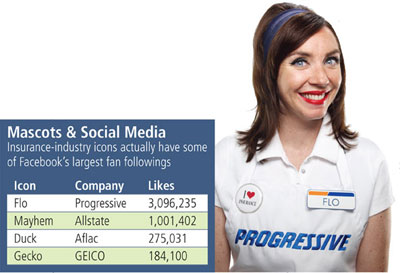 The Travelers Companies scored a YouTube success this summer by uploading its humorous television commercial starring a lovable pooch that is afraid that a prowling "cat burglar" might rob his doghouse. But Travelers isn't the only insurer seeing a bump in Web traffic thanks to the ad.
The Travelers Companies scored a YouTube success this summer by uploading its humorous television commercial starring a lovable pooch that is afraid that a prowling "cat burglar" might rob his doghouse. But Travelers isn't the only insurer seeing a bump in Web traffic thanks to the ad.
After requesting Travelers' permission to embed the video in his company blog, "we're getting about 25 hits a day from people who have Googled the video," says Nibby Priest, vice president of the independent Vaughn Insurance Agency Co., in Henderson, Ky. "These are people who have been directed to our Website who wouldn't have come otherwise." And the hope is that some of these visitors will linger on the site long enough to become new customers.
Priest's use of the Travelers commercial illustrates the beneficial relationship that can exist between local agents and national carriers as they use social-media tools. In striking the right balance that plays to each others strengths, agents are leveraging the sizable brand recognition and knowledge base of carriers—while at the same time emphasizing their own local roots and connections.
Recommended For You
Want to continue reading?
Become a Free PropertyCasualty360 Digital Reader
Your access to unlimited PropertyCasualty360 content isn’t changing.
Once you are an ALM digital member, you’ll receive:
- Breaking insurance news and analysis, on-site and via our newsletters and custom alerts
- Weekly Insurance Speak podcast featuring exclusive interviews with industry leaders
- Educational webcasts, white papers, and ebooks from industry thought leaders
- Critical converage of the employee benefits and financial advisory markets on our other ALM sites, BenefitsPRO and ThinkAdvisor
Already have an account? Sign In Now
© 2025 ALM Global, LLC, All Rights Reserved. Request academic re-use from www.copyright.com. All other uses, submit a request to [email protected]. For more information visit Asset & Logo Licensing.








